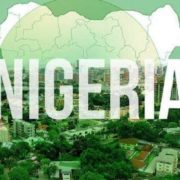By Abiodun KOMOLAFE
Thank God Ekiti school children and their teachers who were kidnapped on Monday, January 29, 2024, have now been released and reunited with their families. May the ‘Land of Honour’ never witness such a horrible experience again!
Yours sincerely also join other well-meaning Nigerians to commiserate with those who lost loved ones to the two tragedies. May God repose the souls of the faithful departed and grant the bereaved families the courage to process their losses and the strength to face whatever lies ahead!
Most of all, Governor Biodun Abayomi Oyebanji, aka BAO, deserves a pat on the back for taking steps that demonstrated the true essence of public service. No doubt about it, he, like any other governor in Nigeria, is under immense pressure and recent events in the country have not helped matters. But then, here’s a man who did not delegate responsibilities or send his deputy on an assessment tour of the terrible tragedies that had just rocked the state. Oyebanji did not attempt to insult God by asking Him to help put rice on fire after He had done His part of the provision. No, the governor did not resort to episodic strategies and dead laws that’d have further left the victims battered and bruised. Instead, he took charge! He led from the front!
Oyebanji took steps that clearly showed the remarkable empathy in his public persona, which mattered to the people. He gave a comforting ‘state of the state’ broadcast, visited the affected communities and representatives of the traditional rulers to reassure them of his administration’s strong resolve to deal neatly, meticulously and decisively with the scent of frustration, confusion and a piece of complex puzzle trying to overwhelm the state. He met with Nigeria’s military chiefs and the Inspector General of Police on the security situation in the state, and this led to a promise to assist Ekiti security-wise. The governor did even more, and the results showed!
Bold steps! Encouraging results! From what Nigerians have seen in the past few days, Oyebanji is a governor any state worth its purpose will want to have! But again, how did we get to this sorry pass and what next?
The current dilemma again reminds one of a time in Nigeria’s recent history when the social media platforms were flooded with videos of young men who, in their thousands, were reportedly undergoing paramilitary training in insurgency in selected camps. Unfortunately, the principalities and powers at the time watched helplessly as some witches and wizards acted recklessly. With the Indigenous People of Biafra (IPOB) and the Eastern Security Network (ESN) as the culprits, Nigerians are now living with the consequences.
When Gani Adams cried out that Fulani herdsmen’s invasion of the forest reserves in Yorubaland was a taboo and an embarrassment that should not be tolerated, our leaders and elders either didn’t have the nerve to speak truth to power or made political fortunes out of the bad situation. Now, the chickens have come home to roost and here we are, crying over spilled milk!
When Sunday Adeyemo, alias Sunday Igboho, attempted to lead a response to the criminal herdsmen who had invaded Yorubaland, some Nigerians gave him a bad name. The feeling then was that Igboho was just an impenitent irritant in the hunt for undue attention. With the help of some powerful forces, the activist was thrown out of the country and was detained in a foreign land. Safe for providence, the story would have been pathetically different. Now, here we are, licking our wounds!
Truly, the upsurge in the killings and abductions is not new; and it is not that the tendencies also assumed office with the Bola Tinubu-led government. However, it is no longer news that things are taking turns for the worse in Nigeria. Kidnappings for ransom are fast becoming an industry to the level of the hunter becoming the hunted. In the days of old, whenever anything was stolen, the oracle would be consulted to help catch the thieves. Now, thieves have stolen the oracle. So, who are we going to consult? Here, everything seems to be failing and falling. Abuja, Nigeria’s administrative and political capital is no longer safe while Lagos, Nigeria’s economic hub is fast becoming a dangerous terrain for commerce to thrive. Even police and military formations are no longer secure, and one begins to ask if the proverbial security dogs have not begun eating up their owners’ children.
When former President Muhammadu Buhari came, Nigerians were deceived into believing that he’s got body language. Of course, that horrid legacy worked for some time, until Nigerians woke up from their slumber only to discover that body language as a pill has an expiry date. One major challenge with the present government is that it doesn’t even seem to have a body language; and that’s unfortunate.
During his time as British Prime Minister, a wall collapsed at a secondary school in Manchester while Tony Blair was attending a Tax Conference in Brussels. Even with no recorded fatality, Blair handed the affairs of the British government at the Conference over to his Foreign Secretary and flew back to Manchester to side with the victims of the wall collapse. In 2016, following multiple police shootings in Dallas, former President Barack Obama not only visited the families of the five deceased officers but also attended an interfaith memorial service in their honour. Well, I hope to come back to that later.
Going back in time, previous governments would have tamed the insecurity monster if only they had the sincerity of purpose and the will to go to its root causes as most professionally and honestly as possible. But that never happened, due to what only the handlers of Nigeria could explain. In terms of security, no one knows where Nigeria is presently headed. In our very eyes, kidnapping has become a major business in the country but unfortunately, the system has failed in the most elementary detective form to follow the money paid as ransom.
The fear and the authority of a policeman command social order. The fear and the command of a soldier brings more powerful social control on the society, simply because he represents not just the government but also confirms the authoritative use of force being exclusive to the state. Nevertheless, insecurity has a way of getting a life of its own. For instance, nobody can have a pattern at Budapest in Hungary and Bukkuyum in Zamfara State. So, we need to do a study of an environment vis-à-vis its historical environmental antecedents in order to initiate security measures.
Why have successive governments’ investments in security not justified by tangible results and reduction in the violent criminal waves? Yes, previous governments shied away from going the full hog because of political, humanitarian and regional considerations but where has that left us as a country and people? Why do Nigerians seem to have lost confidence in almost all the institutions: police, army, academics, banking, judiciary, tradition, religion, just name it? Why have they been clamouring for restructuring or a return to the 1963 Constitution which gave room for each region to stand alone and develop at its own pace but bring something to the centre?
Why are those in charge at the top not making use of intelligence adequately and why are the masses running the race by being forgotten? Why are security agencies failing in infiltration tactics, intelligence gathering, proactive sting operations and covert operational planning which could help in destroying terrorist camps from within? Sincerely, doesn’t the present situation call for a revisit to the widely anticipated re-organization of the first responder law enforcement agency in Nigeria – the Nigeria Police?
*To be continued.




















